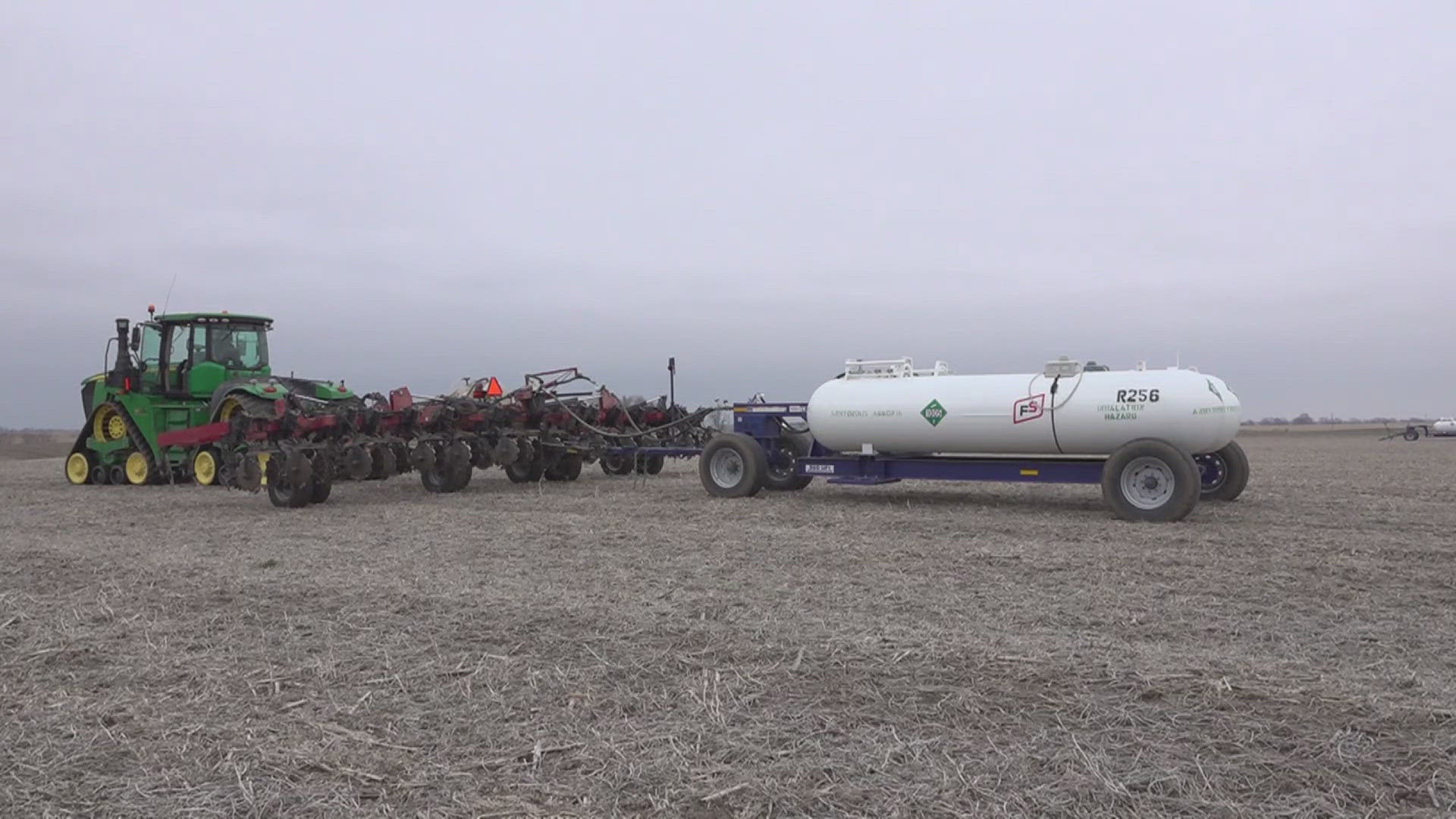REYNOLDS, Ill. — White tanks carrying anhydrous ammonia can be seen on the roads and in fields near the Quad Cities area.
The tanks of NH3 are applied by farmers and agribusiness cooperatives as a nitrogen fertilizer in the fall and spring.
"Nitrogen is actually the number one limiting factor for the corn crop in 2025," Matt Frakes with GoldStar FS said.
The product is injected 6.5 inches into the ground.
"The crop needs that to have good yields," Rock Island County farmer David Mueller said.
Frakes said smaller tanks, called nurse tanks, carry the fertilizer from the plant locations to the field.
"The big tanks that fill our mother tanks are at our locations. Those are primarily hooked to semis," he said.
Frakes warns it's important to stay alert during the seasons when the chemicals are more likely to be on the road. He also reminded community members the tanks often turn into unmarked fields or driveways.
“We always have our four-wheel flashers on along with the blinking light on top of the truck, and an SMV sign," he said.
Anhydrous ammonia will cause irritation to the eyes, mouth and throat and is deadly. In 2023, five people died following a car accident where anhydrous ammonia spilled. Frakes said if you encounter a gas plume, stay far away.
Precautions are taken into account on the road and in the field. Operators and farmers must be certified before they can apply and transport NH3.
"It's a good product but there's some dangers that go along with it," GoldStar FS Custom Operator Dirk Hippen said. "Take your time doing it when you're hooking up and unhooking. That's the spot where a guy like me or any operator can get hurt."
"There's so many things in agriculture that are dangerous, inherently dangerous," Mueller said. "You need to keep safety on your mind."

